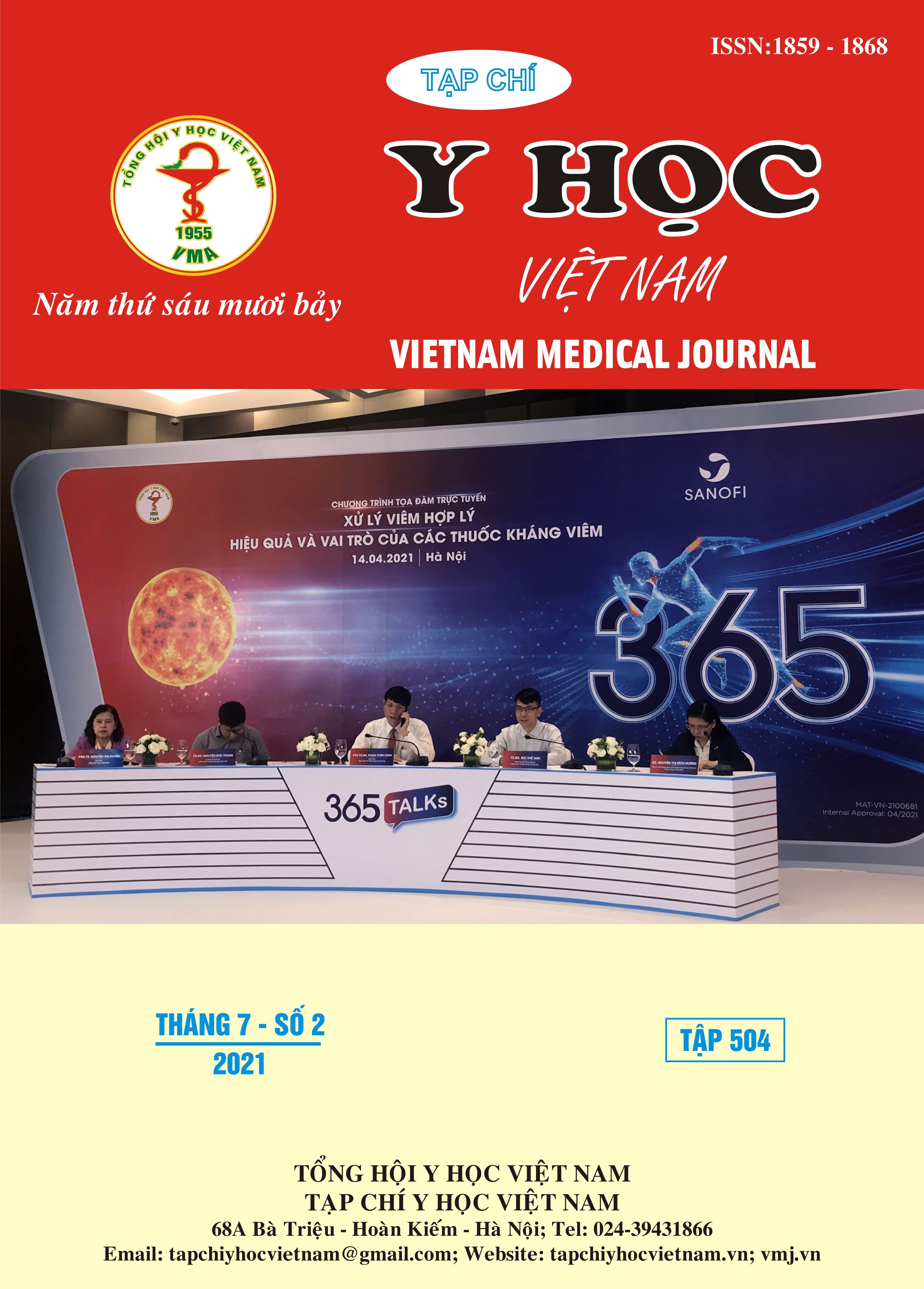EVALUATION OF THE SUCCESSFUL EFFECTIVENESS OF ABSTINENCE THERAPY IN PREGNANT WOMEN DIAGNOSED WITH GESTATIONAL DIABETES AT BINH CHANH DISTRICT HOSPITAL
Main Article Content
Abstract
Background: Gestational diabetes (GDM) causes adverse effects on maternal and newborn health. An appropriate regime plays the most important role to control blood sugar during pregnancy. This study is aimed to evaluate the successful rate of implementing a detailed diet to women suffered from GDM in Binh Chanh hospital. Methods: A prospective longitudinal study was carried out from 01/11/2020 – 30/6/2021 at Binh Chanh District Hospital. There were 143 pregnant women diagnosed with GDM in the period from 24 weeks recruited in this study. They were applied a detailed regime in which the calorie intake is strictly calculated following to the Ministry of Health in Vietnam. All GDM women were followed up until their delivery and evaluate the maternal and fetal outcomes. A successful treatment is defined when the blood sugar at the target level. Results: The successful rate of implementing a detailed regime is 83,9% (CI 95%: 78,3 – 89,5). We established a daily regime with an appropriate increased calories that matches to two final trimesters of gestation : From 24 weeks to 28 weeks is 1685.5 ± 310.1 calories; from 29weeks to 32 weeks is1609,2 ± 316,6 calories; and from 33 weeks to 37 weeks is 1704,3 ± 327,6 calories. A treatment failure with blood sugar unmet the target is related to pregnant women who were not strictly followed the regime with a relative risk at 14,3 times (95% CI: 1,9 – 102,4; p=0,008). GDM women with treatment failure are significantly increased risks of caesarean section and neonatal complications from17,8 times higher (95% CI: 1,3 – 247,4; p=0,032) to 4,3 times higher (95% CI: 1,1 – 16,8; p=0,039), respectively. Conclusion: A detailed regime helps GDM women meet the target of blood sugar and reduce the maternal and fetal outcomes.
Article Details
Keywords
Gestational diabetes, successful treatment, treatment failure
References
2. Deputy N. P (2018), "Prevalence and Changes in Preexisting Diabetes and Gestational Diabetes Among Women Who Had a Live Birth - United States, 2012-2016", MMWR Morb Mortal Wkly Rep. 67(43), pp. 1201-1207.
3. Nguyễn Hằng Giang, Ngô Thị Kim Phụng (2014), Kết quả điều trị đái tháo đường thai kỳ bằng chế độ ăn chế tiết tại Bệnh viện Hùng Vương năm 2013- 2014, Luận văn tốt nghiệp bác sĩ nội trú, Đại Học Y Dược thành phố Hồ Chí Minh, thành phố Hồ Chí Minh.
4. Trương Thị Nguyện Hảo (2016), Đánh giá hiệu quả tiết chế ăn uống trên thai phụ đái tháo đường thai kỳ tại bệnh viện quận Thủ Đức, Đại học Y Dược thành phố Hồ Chí Minh, Thành phố Hồ Chí Minh.
5. Phan Hoàng Mẫn Đạt (2019), Tỷ lệ đái tháo đường thai kỳ và các yếu tố liên quan tại bệnh viện An Phước – Bình Thuận, Luận văn thạc sĩ y học, Đại học Y Dược Tp. Hồ Chí Minh, Tp. Hồ Chí Minh.
6. M. N. Feghali (2019), "Response to Medical Nutritional Therapy and Need for Pharmacological Therapy in Women with Gestational Diabetes", Am J Perinatol. 36(12), pp.1250-1255.
7. R. Martis (2016), "Different intensities of glycaemic control for women with gestational diabetes mellitus", Cochrane Database Syst Rev. 4(4), Cd011624.
8. D. Farrar (2016), "Hyperglycaemia and risk of adverse perinatal outcomes: systematic review and meta-analysis", Bmj. 354, pp. i4694.


